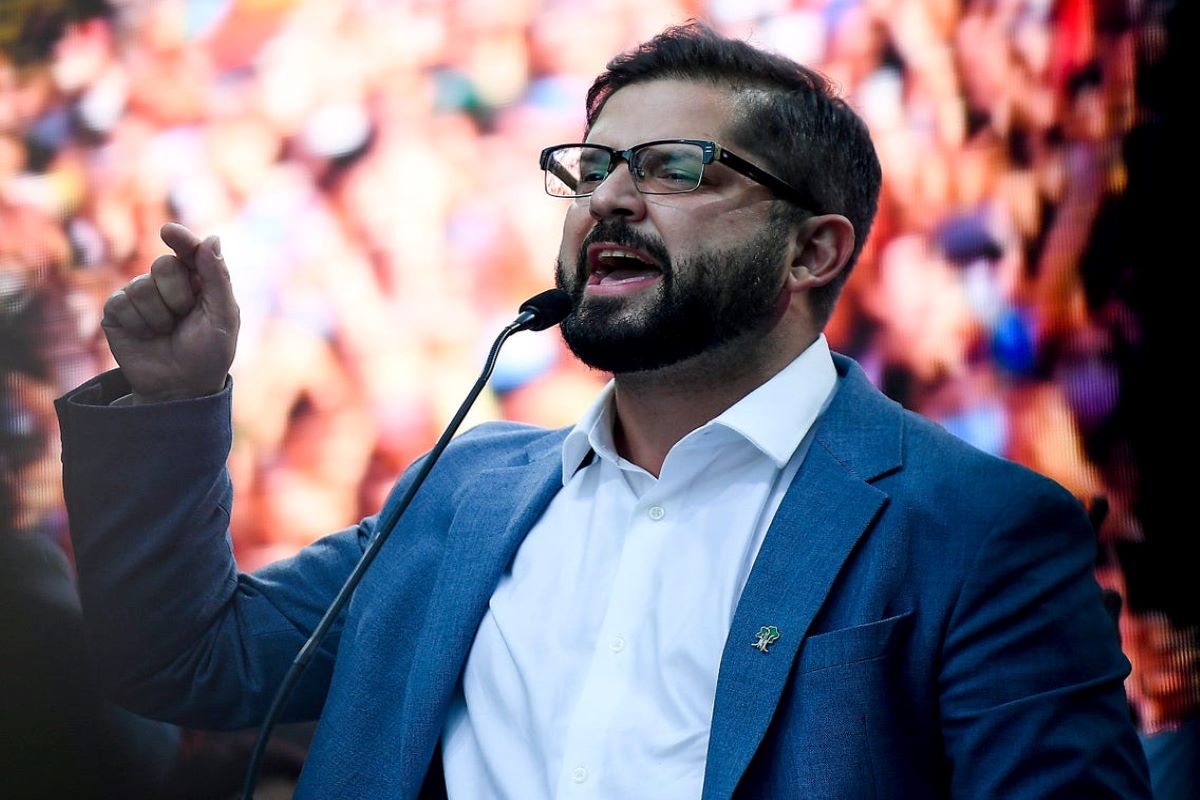Spirit of democracy
In the grand tapestry of global politics, 2024 emerges as a pivotal year, where the heartbeat of democracy resonates across borders.
Chile’s early dalliance with neoliberalism also exposes how the latter requires extreme violence or ‘shocks’ — as Naomi Klein argues in The Shock Doctrine — to entrench itself. Klein traces how the massive upheaval the privatisation policies of neoliberal Chile triggered were only implemented under a draconian regime that rested on mass killings and torture which served as the ‘shock’ that allowed Chilean society to become more complaisant towards these radical economic changes.

Chile President Gabriel Boric (AP photo)
Observers will not have missed the irony when Chile’s newly elected President Gabriel Boric stood on the stage on the eve of his primary election victory and declared Chile as the ‘grave of neoliberalism’. Boric’s stunning victory comes 48 years after Salvador Allende, the world’s first democratically elected communist president, was overthrown in a military coup in 1973. Allende’s successor, Gen Augusto Pinochet, embraced neoliberal policies and allowed Chile to become a laboratory for neoliberalism.
The significance of this electoral victory can only be understood in a larger historical context, one that traces the transformations Chilean society has undergone since 1973. Pinochet, backed by the financial muscle of the Western bloc of the Cold War — allowed Milton Friedman and his disciples the ‘Chicago Boys’ to fully experiment with and direct the Chilean economy.
The policies of the Chicago Boys — trained by Friedman in the economics department of the University of Chicago — relied solely on Friedman’s theories of monetary economics and his implacable belief in the superiority of the free market. Subsequently, Chile witnessed rising privatisation, including the privatisation of social security and water supply, and a sharp increase in national inequality that continue to haunt it today.
Advertisement
Chile’s early dalliance with neoliberalism also exposes how the latter requires extreme violence or ‘shocks’ — as Naomi Klein argues in The Shock Doctrine — to entrench itself. Klein traces how the massive upheaval the privatisation policies of neoliberal Chile triggered were only implemented under a draconian regime that rested on mass killings and torture which served as the ‘shock’ that allowed Chilean society to become more complaisant towards these radical economic changes. We witnessed a similarly radical neoliberal transformation in Iraq in the wake of the ‘shock’ of the 2003 invasion. These historical undercurrents are what shaped the outcomes of the 2021 elections.
In 2019, mass protests broke out across Chile which sought to express the rage and discontent Chileans faced towards the country’s neoliberal outlook. Boric, then a student leader, emerged as a key voice when his message of jettisoning neoliberalism and ‘taxing the rich’ resonated with the Chilean masses. In fact, Boric rode this sentiment into the 2021 elections, where despite losing in the primary round to his far-right opponent Antonio Kast, he managed to secure the presidency from his left-wing platform.
Gabriel Boric’s ascent thus marks a seminal moment in both Chilean and global politics. For Chile, it symbolises hope for a better and more inclusive future, one that seeks to rectify decades of flawed economic policies. For the rest of the world, the elections serve as an example of an alternative future in which far-right movements do not carry forward the mantle of neoliberalism.
Since the Global Recession of 2007, in fact, societies have responded to the depredations of neoliberalism by embracing xenophobic and exclusivist governments. As Pankaj Mishra argues in The Age of Anger, the rise of far-right leaders such as Donald Trump, Jair Bolsonaro and Marine Le Pen are all products of the iniquities and anger unfettered neoliberalism has unleashed. As Boric’s victory shows, however, embracing these far-right sentiments is not the only outcome for societies reeling under neoliberal inequality.
Instead, progressive leaders can channel the energy of masses towards a more equitable and inclusive future. This is in fact exactly what the Occupy Wall Street Movement of 2011 in the US aimed to do, when it correctly identified financial capital as the bedrock of the modern neoliberal economy and sought to overthrow an economic system that had resulted in so much inequality. The sharp rise in the popularity of Bernie Sanders, particularly amongst American youth, too reflected this sentiment and allowed us to envision a future unshackled by the tenets of neoliberal thought.
Developments in Chile hold important lessons for Pakistan as well. Boric’s rise from a student leader to the acme of power in the country mirrors the trajectory of several of Pakistan’s own historic politicians. For decades, however, student politics has been banned in the country, a paradigm that has resulted in a sharp ossification of and a decline in political thought and discourse in the country.
This ban, coupled with the incessant rise in extremism, has given birth to a political system shorn of ideological politics or conversations. As Boric’s victory indicates, only a system that provides space to ideological voices can allow us to imagine and develop alternative futures. Otherwise, we threaten to remain in the throes of a politics firmly circumscribed by what Tariq Ali calls the “hegemony of the centre” and a collective failure of both imagination and political vision.
(Dawn/ANN)
Advertisement